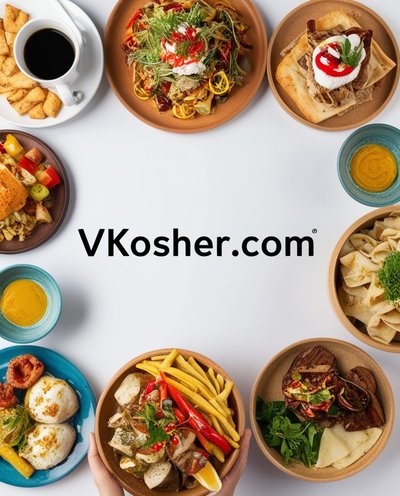Understanding Kosher Certification: A Comprehensive Guide
Kosher certification is a crucial aspect of the food industry for many consumers who observe Jewish dietary laws. It signifies that a product adheres to the stringent requirements of kashrut, the body of Jewish law that governs food preparation and consumption. The process of obtaining kosher certification involves a detailed examination of the production methods, ingredients, and overall compliance with these laws. This guide aims to delve into the complexities of kosher certification, exploring its significance, the certification process, and its impact on various industries.
What is Kosher Certification?
Kosher certification is a formal declaration by a recognized authority that a product complies with the laws of kashrut. These laws are derived from the Torah, specifically the books of Leviticus and Deuteronomy, and have been elaborated upon through centuries of rabbinical interpretation. The principles of kashrut include prohibitions against consuming certain animals, mixing meat and dairy products, and ensuring that all food is prepared using utensils and equipment that are exclusively kosher. Kosher certification ensures that these guidelines are strictly followed throughout the production process.
The Significance of Kosher Certification
For observant Jews, kosher certification is more than just a mark of compliance; it is a symbol of religious adherence and trust. Products that bear a kosher certification are trusted to meet the highest standards of cleanliness and ethical production. This trust extends beyond the Jewish community, as many consumers appreciate the rigorous standards and transparency associated with kosher products. The certification often signals a commitment to quality and integrity, making kosher products desirable to a broader audience.
The Kosher Certification Process
The journey to obtaining kosher certification begins with a thorough evaluation of the product and its production environment. This process is usually undertaken by a recognized kosher certification agency, which employs trained rabbis and experts in kashrut. The first step involves an inspection of the ingredients used in the product. Each ingredient must be verified as kosher, meaning it must come from a permissible source and be processed in a manner that adheres to kashrut laws.
Once the ingredients are verified, the next phase is the examination of the production facility. The facility must be free from contamination with non-kosher substances, and all equipment used in production must be kosher. This often requires the facility to have separate equipment or rigorous cleaning procedures to prevent cross-contamination. The production process itself must also be monitored to ensure that no non-kosher practices are employed.
The certification agency will also conduct periodic inspections to maintain the kosher status of the product. This ongoing oversight ensures that any changes in ingredients, equipment, or procedures do not compromise the product's kosher status. Additionally, the certification agency provides training and guidance to the production staff to uphold kosher standards consistently.
Types of Kosher Certification
Kosher certification comes in various forms, each indicating different levels of adherence to kashrut laws. The most common symbols found on certified products are the OU (Orthodox Union), Kof-K, and Star-K. These symbols represent different certification agencies, each with its own set of standards and practices. While the symbols may vary, they all signify that the product has met the rigorous requirements of kashrut.
Kosher Certification in the Food Industry
In the food industry, kosher certification has become increasingly significant due to its impact on consumer choice and market reach. Many food manufacturers seek kosher certification to appeal to a wider audience, including those with dietary restrictions or ethical concerns. The presence of a kosher certification can also enhance a product's reputation for quality and trustworthiness.
For restaurants and food service establishments, kosher certification can open up new business opportunities. Establishments that are certified as kosher can attract a clientele that observes kashrut laws, and the certification can also serve as a mark of quality and reliability for non-Jewish customers. The certification process for food service establishments is similar to that for packaged goods, involving a thorough inspection of the kitchen, equipment, and food preparation practices.
Kosher Certification and Dietary Restrictions
Kosher certification is not limited to Jewish dietary laws; it also intersects with various dietary restrictions and preferences. For example, many people who follow vegetarian or vegan diets find that kosher products align with their principles, especially those labeled as pareve (neither meat nor dairy). Kosher certification also often intersects with gluten-free or allergen-free diets, as the rigorous inspection process helps ensure the absence of cross-contamination with restricted ingredients.
Global Impact of Kosher Certification
The influence of kosher certification extends beyond the Jewish community and has a significant global impact. In many countries, kosher certification is recognized and respected as a standard of food safety and quality. The global reach of kosher certification has led to its adoption in diverse markets, where it serves as a mark of excellence and reliability. This widespread recognition contributes to the growth of the kosher market and highlights the universal appeal of its standards.
Challenges in Kosher Certification
While kosher certification offers numerous benefits, it also presents certain challenges. The certification process can be complex and costly, requiring a detailed understanding of kashrut laws and strict adherence to standards. For smaller producers, the financial and logistical demands of certification can be a significant hurdle. Additionally, the evolving nature of food production and ingredient sourcing presents ongoing challenges in maintaining kosher compliance.
Certification agencies continually adapt to these challenges by updating their standards and procedures. Collaboration between agencies, producers, and consumers helps address issues and ensure that kosher certification remains a reliable and relevant mark of quality. Ongoing education and outreach efforts also play a crucial role in overcoming challenges and promoting the benefits of kosher certification.
The Future of Kosher Certification
Looking ahead, the future of kosher certification appears promising as the demand for kosher products continues to grow. Advances in technology and changes in consumer preferences are likely to influence the certification process and expand its reach. Innovations in food production and ingredient sourcing may lead to new opportunities for kosher certification, enhancing its role in the global food industry.
The continued commitment to upholding the principles of kashrut, coupled with the evolving needs of consumers, will shape the future of kosher certification. As the industry adapts to new challenges and opportunities, the core values of quality, trust, and integrity will remain central to the certification process.
In conclusion, kosher certification represents a vital aspect of the food industry, ensuring adherence to the principles of kashrut and fostering trust among consumers. Its significance extends beyond religious observance, impacting various dietary preferences and global markets. The certification process, while complex, upholds high standards of quality and safety, reflecting a commitment to excellence in food production. As the industry continues to evolve, kosher certification will play a key role in shaping the future of food standards and consumer choices.
Kosher certification is a crucial aspect of the food industry for many consumers who observe Jewish dietary laws. It signifies that a product adheres to the stringent requirements of kashrut, the body of Jewish law that governs food preparation and consumption. The process of obtaining kosher certification involves a detailed examination of the production methods, ingredients, and overall compliance with these laws. This guide aims to delve into the complexities of kosher certification, exploring its significance, the certification process, and its impact on various industries.
What is Kosher Certification?
Kosher certification is a formal declaration by a recognized authority that a product complies with the laws of kashrut. These laws are derived from the Torah, specifically the books of Leviticus and Deuteronomy, and have been elaborated upon through centuries of rabbinical interpretation. The principles of kashrut include prohibitions against consuming certain animals, mixing meat and dairy products, and ensuring that all food is prepared using utensils and equipment that are exclusively kosher. Kosher certification ensures that these guidelines are strictly followed throughout the production process.
The Significance of Kosher Certification
For observant Jews, kosher certification is more than just a mark of compliance; it is a symbol of religious adherence and trust. Products that bear a kosher certification are trusted to meet the highest standards of cleanliness and ethical production. This trust extends beyond the Jewish community, as many consumers appreciate the rigorous standards and transparency associated with kosher products. The certification often signals a commitment to quality and integrity, making kosher products desirable to a broader audience.
The Kosher Certification Process
The journey to obtaining kosher certification begins with a thorough evaluation of the product and its production environment. This process is usually undertaken by a recognized kosher certification agency, which employs trained rabbis and experts in kashrut. The first step involves an inspection of the ingredients used in the product. Each ingredient must be verified as kosher, meaning it must come from a permissible source and be processed in a manner that adheres to kashrut laws.
Once the ingredients are verified, the next phase is the examination of the production facility. The facility must be free from contamination with non-kosher substances, and all equipment used in production must be kosher. This often requires the facility to have separate equipment or rigorous cleaning procedures to prevent cross-contamination. The production process itself must also be monitored to ensure that no non-kosher practices are employed.
The certification agency will also conduct periodic inspections to maintain the kosher status of the product. This ongoing oversight ensures that any changes in ingredients, equipment, or procedures do not compromise the product's kosher status. Additionally, the certification agency provides training and guidance to the production staff to uphold kosher standards consistently.
Types of Kosher Certification
Kosher certification comes in various forms, each indicating different levels of adherence to kashrut laws. The most common symbols found on certified products are the OU (Orthodox Union), Kof-K, and Star-K. These symbols represent different certification agencies, each with its own set of standards and practices. While the symbols may vary, they all signify that the product has met the rigorous requirements of kashrut.
Kosher Certification in the Food Industry
In the food industry, kosher certification has become increasingly significant due to its impact on consumer choice and market reach. Many food manufacturers seek kosher certification to appeal to a wider audience, including those with dietary restrictions or ethical concerns. The presence of a kosher certification can also enhance a product's reputation for quality and trustworthiness.
For restaurants and food service establishments, kosher certification can open up new business opportunities. Establishments that are certified as kosher can attract a clientele that observes kashrut laws, and the certification can also serve as a mark of quality and reliability for non-Jewish customers. The certification process for food service establishments is similar to that for packaged goods, involving a thorough inspection of the kitchen, equipment, and food preparation practices.
Kosher Certification and Dietary Restrictions
Kosher certification is not limited to Jewish dietary laws; it also intersects with various dietary restrictions and preferences. For example, many people who follow vegetarian or vegan diets find that kosher products align with their principles, especially those labeled as pareve (neither meat nor dairy). Kosher certification also often intersects with gluten-free or allergen-free diets, as the rigorous inspection process helps ensure the absence of cross-contamination with restricted ingredients.
Global Impact of Kosher Certification
The influence of kosher certification extends beyond the Jewish community and has a significant global impact. In many countries, kosher certification is recognized and respected as a standard of food safety and quality. The global reach of kosher certification has led to its adoption in diverse markets, where it serves as a mark of excellence and reliability. This widespread recognition contributes to the growth of the kosher market and highlights the universal appeal of its standards.
Challenges in Kosher Certification
While kosher certification offers numerous benefits, it also presents certain challenges. The certification process can be complex and costly, requiring a detailed understanding of kashrut laws and strict adherence to standards. For smaller producers, the financial and logistical demands of certification can be a significant hurdle. Additionally, the evolving nature of food production and ingredient sourcing presents ongoing challenges in maintaining kosher compliance.
Certification agencies continually adapt to these challenges by updating their standards and procedures. Collaboration between agencies, producers, and consumers helps address issues and ensure that kosher certification remains a reliable and relevant mark of quality. Ongoing education and outreach efforts also play a crucial role in overcoming challenges and promoting the benefits of kosher certification.
The Future of Kosher Certification
Looking ahead, the future of kosher certification appears promising as the demand for kosher products continues to grow. Advances in technology and changes in consumer preferences are likely to influence the certification process and expand its reach. Innovations in food production and ingredient sourcing may lead to new opportunities for kosher certification, enhancing its role in the global food industry.
The continued commitment to upholding the principles of kashrut, coupled with the evolving needs of consumers, will shape the future of kosher certification. As the industry adapts to new challenges and opportunities, the core values of quality, trust, and integrity will remain central to the certification process.
In conclusion, kosher certification represents a vital aspect of the food industry, ensuring adherence to the principles of kashrut and fostering trust among consumers. Its significance extends beyond religious observance, impacting various dietary preferences and global markets. The certification process, while complex, upholds high standards of quality and safety, reflecting a commitment to excellence in food production. As the industry continues to evolve, kosher certification will play a key role in shaping the future of food standards and consumer choices.




